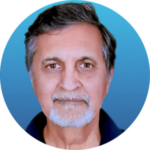
Upcoming Event
Meet us at ADLM 2025 in Chicago!
July 27-31, 2025
Discover how Ascential Medical and Life Sciences delivers innovative solutions through design, development, testing, and manufacturing. Speak with our experts and learn how we turn revolutionary ideas into reality.
Schedule a MeetingOn-Demand Podcast
Automation in Cell & Gene Therapy: Enabling Personalized Medicine at Scale
Cell and gene therapies (CGT) are revolutionizing medicine, offering life-saving solutions for patients with cancer, autoimmune conditions, and genetic disorders. Despite their promise, the ability to scale these treatments remains a critical barrier to widespread access. Today, manufacturing CGT therapies is slow, costly, and complex—relying on labor-intensive manual processes, open systems, and long vein-to-vein timelines.
In this on-demand podcast, hosted by AZo Network, experts from Ascential Medical & Life Sciences explore how automation, robotics, and closed systems are reshaping the future of autologous therapy production by addressing key pain points like quality control, labor shortages, and regulatory challenges.
You’ll learn:
- How leading-edge manufacturers are implementing flexible, automated, and aseptic workflows
- How automation can reduce costs, improve yields, and accelerate delivery without compromising safety or efficacy
- The growing shift toward decentralized manufacturing models and how closed systems are enabling faster, regionalized access to therapies
With deep expertise in custom automation, sterile process design, and in-line quality control positions, our experts share their best advice with CGT innovators looking to scale with confidence.
Join us to discover how intelligent manufacturing solutions are unlocking the full potential of CGT and saving lives in the process.
Featured Speakers:

Todd Martensen
Chief Strategy Officer, Ascential Medical & Life Sciences
Todd Martensen drives strategic direction, long‑term growth initiatives, innovation, partnerships, M&A, and new market development at Ascential. Previously, he served as Ascential’s Chief Commercial Officer, overseeing the commercial team. Todd has a deep background in sales and leadership in the medical sector, having held key roles at Johnson & Johnson’s Cordis, B. Braun, Alveolus (acquired by Merit Medical), Danaher, KLOX Technologies, and most recently as Vice President of the Medical Sector at Benchmark Electronics, where he managed the company’s global medical business.

Vinod Mirchandani
Chief Technology Officer, Ascential Medical & Life Sciences
Vinod Mirchandani leads engineering strategy, product innovation, and the development of advanced automation solutions for complex medical technologies at Ascential. With deep expertise in precision engineering, robotics, and scalable life science manufacturing, Vinod plays a key role in driving Ascential’s work in cell and gene therapy, diagnostics, and combination devices. He brings decades of experience building and leading high‑performance engineering teams focused on designing manufacturable, compliant, and cost‑effective medical solutions that improve patient outcomes.
